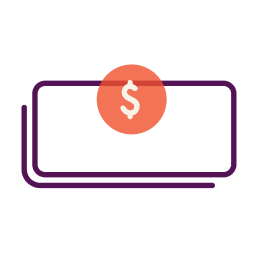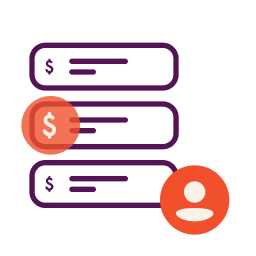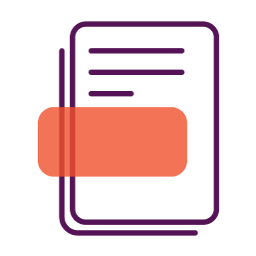If you’re a small business owner, or are otherwise self-employed, chances are you’ve heard of an EIN (or employer identification number). You may not be clear, however, on exactly what an EIN is, whether you need one, or how to go about getting a free EIN if you do.
There are four ways to apply for an employer identification number (EIN) for free:
- Complete the online application for an EIN, or
- Fill out form SS-4 and mail it to the IRS,
- Fill out form SS-4 and fax it to the IRS,
- Call the IRS to request an EIN (international applicants)
An employer identification number (EIN) is a nine-digit number used by the Internal Revenue Service (IRS) to identify a business. You may also hear it referred to as a Federal Employer Identification Number (FEIN) or Federal Tax ID number. Think of it as the equivalent of a Social Security number for your business. The IRS requires certain businesses to get an use an EIN for tax purposes.
When Does the IRS Require an EIN?
The IRS offers a simple checklist you can use to determine whether your business needs an EIN. If you answer “yes” to any of the following questions, you need to apply for an EIN.
- Do you have employees?
- Do you operate your business as a corporation or a partnership? (Note that an LLC may or may not fall under this category. See below.)
- Do you withhold taxes on income, other than wages, paid to a non-resident alien?
- Do you have a Keogh plan?
You must also get an EIN if you are involved in any of the following types of organizations:
- Trusts, except certain grantor-owned revocable trusts, IRAs, Exempt Organization Business Income Tax Returns
- Estates
- Real estate mortgage investment conduits
- Non-profit organizations
- Farmers’ cooperatives
- Plan administrators
Keep in mind that even if the IRS doesn’t require your business to get one, there may be times you need an EIN; for example to open a business bank account or to apply for a small business loan.
Do I Need an EIN if I’m Self-Employed?
Maybe. The IRS considers you self-employed if you operate a business or trade as a sole proprietor or an independent contractor, if you are a member of a partnership that carries on a trade or business or if you are otherwise in business for yourself. (And yes, that can include “side hustles” or “gig work,” even if it’s part-time income.)
If you are self-employed, ask yourself the questions listed above and if you answer “yes” to any of them, you need an EIN.
Do I Need an EIN for an LLC?
You may or may not need to get an EIN if your business structure is a Limited Liability Company (LLC). If you answered yes to the questions listed previously, then you will need an EIN. In addition, the IRS provides guidance on whether LLCs need an EIN. It includes the following:
“A single-member LLC that is a disregarded entity that does not have employees and does not have an excise tax liability does not need an EIN. It should use the name and Taxpayer Identification Number of the single member owner for federal tax purposes. However, if a single-member LLC, whose taxable income and loss will be reported by the single member owner needs an EIN to open a bank account, or if state tax law requires the single-member LLC to have a federal EIN, the LLC can apply for and obtain an EIN.”
Source: Internal Revenue Service
Does My Business Need an EIN?
If you have reviewed IRS guidelines for when you need an EIN and are still unsure, it’s wise to talk with an accounting professional to determine what is required of your business.
In addition to IRS requirements, you may find your business needs an EIN to get a business bank account, to apply for financing, or to apply for a business license.
Do You Need an EIN to Get a Loan?
Maybe. Some small business lenders require businesses to operate as an LLC, corporation or other legal entity. They may require an EIN or TIN on the application when you apply for a small business loan.
Most small business credit card applications will request an EIN but many do not require the business to have one. If you are trying to build business credit, it’s a good idea to provide this information to assist with the credit reporting process. (Business credit bureaus use their own internal identification numbers, so an EIN is not required, but it can provide additional piece of information that may help match your account to the correct credit profile.)
Can You Apply for a Loan With Your EIN Number Instead of SSN?
Some small business loans don’t require a Social Security number and do not require a credit check. As long as your business has an EIN, you can apply with that tax ID number. Note that some lenders may require a Social Security number from the applicant for fraud prevention purposes, even if a personal credit check or personal guarantee is not required.
There are even a few business credit cards that don’t require a personal credit check, though most do.
Do Banks Need an EIN for a Business?
Not all banks require an EIN to open a business checking account or for other types of business accounts, though some do. Banks that offer sole proprietors bank accounts and/or financing may allow an entrepreneur to open an account using their Social Security number or other Taxpayer Identification Number.
Does It Cost Money to Get an EIN?
The good news is you can apply for an EIN for free. If you use a law firm or other professional service to incorporate your business, they may take care of this task for you and may or may not charge for that service. Just keep in mind that you applying for an EIN is a simple process for most business owners, and you can do it for free on the IRS website.
How Do You Apply for an EIN?
The Internal Revenue Service (IRS) requires a completed Form SS-4 to receive an EIN.
As mentioned earlier, there are four ways to get an EIN for free:
1. Complete the online application for an EIN. You can complete the application online on the IRS website at IRS.gov. If you are successful, you will get your EIN immediately. The online system will guide you through the required questions step-by-step but there are a few caveats you should understand before you start.
You must complete the online application in one session; you won’t be able to save it and return later. In addition the online session will expire after 15 minutes of inactivity, and you’ll have to start over, so plan for some uninterrupted time to complete this task. And even though it’s an online application, you must complete it during the hours of 7 a.m. to 10 p.m. Eastern Standard Time, Monday to Friday.
It’s a good idea to review form SS-4 before you start the online application so you can gather the information you need to complete the online application.
Important
If you are assigned an EIN online, make sure you save the notice verifying that your business has been assigned an EIN and keep it in a safe place.2. Fill out form SS-4 and mail it to the IRS. If your principal business, office or agency, or legal residence in the case of an individual, is located in one of the 50 states or the District of Columbia, mail it to Internal Revenue Service, Attn: EIN Operation, Cincinnati, OH 45999.
If you have no legal residence, principal place of business, or principal office or agency in any state, mail the completed form to Internal Revenue Service Attn: EIN International Operation Cincinnati, OH 45999. The official processing timeframe for an EIN application received by mail is four weeks, though it may take longer.
3. Fill out form SS-4 and fax it to the IRS at (855) 641-6935 if your business (or residence if you are a sole proprietor) is located in one of the 50 states or the District of Columbia.
If you have no legal residence, principal place of business, or principal office or agency in any state, fax the completed form to (855) 215-1627 (within the U.S.) or (304) 707-9471 (outside the U.S.). If approved and you provide a fax number for a response, you should receive your EIN by fax within four business days.
4. Call the IRS to request an EIN (international applicants only) at +1-267-941-1099. Note that it is not a toll-free number so international phone charges may apply, and you must call between 6 a.m. to 11 p.m. (Eastern Time), Monday through Friday. Also note the person making the call must be authorized to receive the EIN and answer questions concerning the application.
Who Is the Responsible Party on the EIN Application?
Each application must designate a “responsible party” who must be an individual, not a business entity. The responsible party is the person who ultimately owns or controls the entity or who exercises ultimate effective control over the entity. And importantly, all EIN applications (mail, fax, electronic) must disclose the name and Taxpayer Identification Number (SSN, TIN, ITIN, or EIN) of the true principal officer, general partner, grantor, owner or trustor. Find more details about responsible parties here.
Note that if the responsible party has requested an EIN online previously, they won’t be able to use that method to request one again and will have to file another way.
Who Qualifies for an EIN?
Anyone whose business is located in the United States or a U.S. territory and has an existing valid taxpayer ID, such as a Social Security number, Individual Taxpayer Identification Number or previous EIN, can apply for a new EIN. While new businesses often apply for EINs, it’s also possible that an established business will need to get one if, for example, it hires its first employee.
How Long Does it Take to Get an Employer Identification Number?
Filling out the paperwork for your EIN can take 10 minutes or less, if you’re prepared. How long it takes to get the number back, however, will depend on how you submit your information. If you submit the information online, you can get your number back immediately. Filling out the SS-4 and mailing it in can take at least four to five weeks.
Depending on the needs of your business, it could be in your best interest to file online. This could eliminate the wait between filing and submitting a loan application or anything else for which you need your EIN.
Will My EIN Ever Change?
There are times when a business may need to apply for a new EIN. Generally, though, a business name change is not one of them.
Sole proprietorships
The IRS will require you to obtain a new EIN if you:
- Are subject to a bankruptcy proceeding.
- Incorporate.
- Take in partners and operate as a partnership.
- Purchase or inherit an existing business that you operate as a sole proprietorship.
It will not require you to obtain a new EIN if you:
- Change the name of your business.
- Change your location and/or add other locations.
- Operate multiple businesses.
Corporations
The IRS will require your corporation to obtain a new EIN if:
- A corporation receives a new charter from the secretary of state.
- You are a subsidiary of a corporation using the parent’s EIN or you become a subsidiary of a corporation.
- You change to a partnership or a sole proprietorship.
- A new corporation is created after a statutory merger.
The IRS will not require your corporation to obtain a new EIN if any of the following statements are true.
- You are a division of a corporation.
- The surviving corporation uses the existing EIN after a corporate merger.
- A corporation declares bankruptcy.
- The corporate name or location changes.
- A corporation chooses to be taxed as an S corporation.
- Reorganization of a corporation changes only the identity or place.
- Conversion at the state level with business structure remaining unchanged.
LLCs
Your LLC will be required to obtain a new EIN if:
- A new LLC with more than one owner (Multi-member LLC) is formed under state law.
- A new LLC with one owner (Single Member LLC) is formed under state law and chooses to be taxed as a corporation or an S corporation.
- A new LLC with one owner (Single Member LLC) is formed under state law, and has an employment or excise tax filing requirement.
Your LLC will not be required to obtain a new EIN if:
- The LLC name or location changes.
- You report income tax as a branch or division of a corporation or other entity, and the LLC has no employees or excise tax liability.
- An existing partnership converts to an LLC classified as a partnership.
- An LLC that already has an EIN chooses to be taxed as a corporation or as an S corporation.
- A new LLC with one owner (single member LLC) is formed under state law, does not choose to be taxed as a corporation or S corporation, and has no employees or excise tax liability.
NOTE: You may request an EIN for banking or state tax purposes, but an EIN is not required for federal tax purposes.
For full details on when you need (or don’t need) a new EIN, visit IRS.gov.
How Do I Find My Employer Identification Number?
If you’ve already received your EIN and have misplaced it, there are a number of ways to retrieve it.
- Look back at your records to see if you have the printed notice from the IRS. If you applied by mail or fax, you will have received the mailed or faxed notice, but if you applied online you will have to rely on the copy you saved online.
- Call the IRS Business & Specialty Tax Line at 800-829-4933.
- Contact your bank if you opened a bank account under the business name. Banks are required to obtain your EIN before opening the account, so they likely have it on hand.
- Review prior tax returns where you used your EIN.
What Do I Do With My EIN?
Regardless of which application method you use to apply, if you are successful, you’ll receive a Form SS-4 Notice verifying that your business has been assigned an EIN. Be sure to hang onto that notice so you can use it to verify your EIN whenever necessary.
It may be requested when you apply for a variety of business services, including a business license or fictitious name (“doing business as”), or financial products such as business credit cards, small business loans or business bank accounts.
Just as you would never want to use the wrong Social Security number when applying for personal loans, you never want to use the wrong EIN when applying for business loans.
Your EIN may or may not appear on your business credit reports. Each business credit reporting agency assigns a unique number for your business credit file in its system, and for that reason, your EIN is not the main identifier for your business credit reports.
Related: What is a DUNS Number?
Finally, business identity theft is a serious problem. If you believe someone is using your business name or EIN to file tax returns or tax forms, make sure you contact the IRS immediately to file a business identity theft case.
This article was originally written on December 17, 2019 and updated on January 8, 2024.





I have my own catering small lil business I need and EIN number u can contact me?
I’m sorry we can’t provide 1 on 1 assistance with getting an EIN but you can use the link in the article above to apply for free at IRS.gov.
So what is the way to get ya EIN number for free
As the article states you can apply online here.
Free EIN
I wanted to give 4 stars, however Rate This Article only would allow one tap on a star, I think somethings wrong with that
Do did you get ya EIN number for free
Yes you can get an EIN free from the IRS.
Do you have to have a EIN number before you can apply for a SBA loan or A Small grant to start your business?
Not necessarily but we recommend it as a good practice.
HiHi how do I apply for EIN number
As we explained in the article, you can apply here.
I wanted to start and small retail business selling new and use clothes
Hello if you want to start a business and you dont have ssn but you trying to get a EIN number how can I go about it please
You can request an EIN for free from the IRS here.